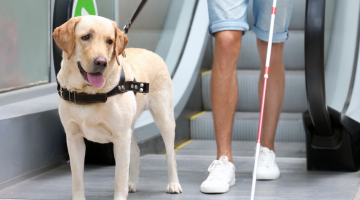Travelling with disabilities
Information and advice that can help you make informed and responsible decisions to keep you safe and make the most of your stay outside Canada.
Services and information
Before you go
Canadian Transportation Agency (CTA)
Find resources and learn about services designed to help facilitate barrier-free travel outside Canada
Canadian Air Transport Security Authority (CATSA)
Find information for persons with disabilities about planning travel, what to do at the screening checkpoint, and tailored advice for specific disabilities
International Transport Forum (ITF)
Check if your destination is a member of the ITF to find out if your accessible parking permit in Canada will be recognized there
Travel Advice and Advisories
Consult our destination-specific travel information and advice to be well-prepared for your trip
Registration of Canadians Abroad
Sign up for notifications in case of an emergency abroad or a personal one at home
Travel insurance
Get travel insurance if you travel outside Canada no matter where you're going or how long you'll be there
Living abroad
Find out how to prepare to study, work or volunteer in another country
Visas
Learn about the documents you may need to avoid any issues upon arrival and during your stay
Get cyber safe
Learn how to stay safe online, wherever you are
Using data plans outside Canada
Avoid expensive roaming fees when you use your Canadian cellphone, mobile device, or computer abroad
While you're away
Travel Advice and Advisories
Stay up to date on the security situation as you travel with our destination-specific information
Health and safety outside Canada
Learn about what to do to protect yourself as you travel
Contact us
If you need emergency help, contact us to tell us about the situation and get more details on how we can help you
Advice for different types of travellers
Older travellers
Find health, transportation and climate information when you’re travelling outside Canada
2SLGBTQI+ travellers
Find information on the laws and customs in other countries that can affect 2SLGBTQI+ travellers
Dual citizen travellers
Find information for Canadian dual citizens travelling or living outside Canada
Women travellers
Learn about legal, cultural, security, health and social considerations for women travellers
Student and youth travellers
Find information for students and youth travelling outside Canada
Coming back
Canada Border Services Agency (CBSA)
How the CBSA helps persons with disabilities travel into Canada
Returning to Canada
Information on returning to Canada, border wait times, customs and immigration
Travel documents
Acceptable documents, establishing your personal identity and your citizenship
Features
- Date modified:



